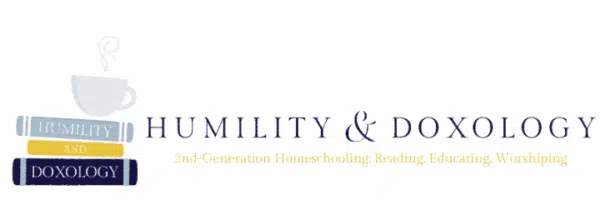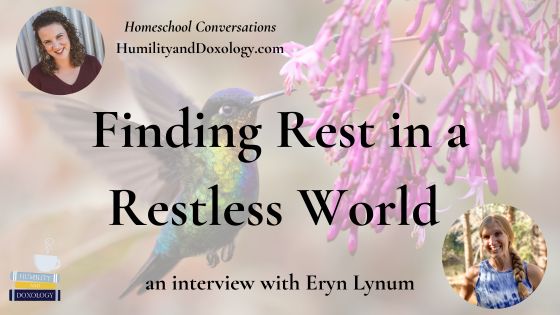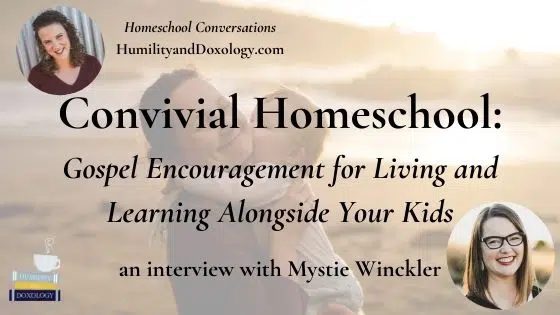What if rest wasn’t a reward for finishing your to-do list, but a rhythm woven into creation itself? In today’s fast-paced culture, biblical rest can feel elusive—especially for homeschooling families juggling responsibilities and expectations. But as Eryn Lynum shared in our recent conversation, true rest is not about doing less, but about being rooted in God’s presence and design. Are you longing for slower homeschool days, a more peaceful heart, or a deeper understanding of Sabbath? Today’s Homeschool Conversation explores the patterns of rest found in Scripture, creation, and daily life and how you can bring those rhythms into your home today.
- What the Bible Says About Rest: A Foundational Theme from Creation to Calvary
- Is Sabbath realistic in our modern day?
- How does God want us to experience His gift of rest?
- How does the biblical concept of rest differ from the modern idea of self-care?
- What patterns and principles of rest do we see in creation?
- How can we experience biblical rest every day?
- Key Takeaways
- Listen to the full podcast episode “Finding Rest in a Restless World with Eryn Lynum” on Homeschool Conversations with Humility and Doxology
- Find Eryn online:
- You may also enjoy:
- Check out all the other interviews in my Homeschool Conversations series!
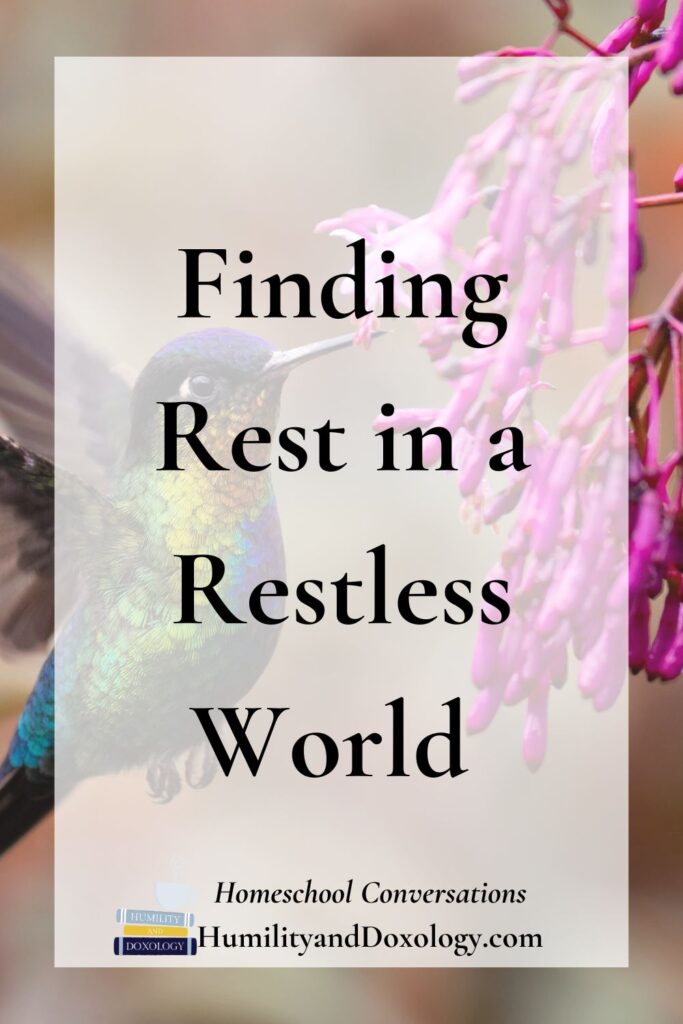
{This post contains paid links. Please see disclaimer.}
What the Bible Says About Rest: A Foundational Theme from Creation to Calvary
Eryn Lynum explores how the concept of rest is far more than a passing idea in Scripture. It’s a foundational, deeply rooted theme woven throughout the entire biblical narrative. Drawing from her family’s years of practicing a weekly Sabbath, Eryn shares how she began studying what the Bible really says about rest. She discovered that rest is first hinted at in creation, when God established a rhythm of work and rest by pausing on the seventh day. It’s then formally introduced in Exodus 16 as the Israelites are called to trust God by gathering manna for six days and resting on the seventh—a radical call to faith and dependence in the wilderness.
Eryn emphasizes how Jesus embodies and fulfills this rest. Even during the busiest seasons of His ministry, Jesus consistently withdrew to quiet places to rest and reconnect with the Father. His life modeled the rhythm of rest, and His sacrifice on Calvary makes true, eternal rest possible for His followers. As Amy adds, we see rest foreshadowed throughout the Old Testament—in creation, in the Mosaic Law, and in the Promised Land—but all of it ultimately points forward to the final, complete rest found in Christ. Hebrews reminds us that “there remains a rest for the people of God,” giving believers a hopeful vision of the eternal Sabbath still to come.
Is Sabbath realistic in our modern day?
Yes—it’s not only realistic, it’s essential. Eryn Lynum explained that while the concept of Sabbath rest might feel countercultural in our fast-paced, productivity-obsessed society, it actually aligns with God’s design for human flourishing.
She shared that people are starting to realize the “hustle mindset” isn’t working—it’s leading to burnout in families, homeschools, and even society as a whole. Sabbath rest, she said, isn’t just a nice idea; it’s rooted in Scripture, history, and even science. God designed Creation to thrive with built-in rhythms of rest, and modern research supports the benefits of rest for both mental clarity and physical health.
Erin’s personal journey gives powerful testimony to this. Diagnosed at age 14 with Addison’s disease—a rare condition that prevents her body from producing stress hormones—she learned early on how crucial biblical rest and stress management were to her well-being.
She acknowledged that practicing Sabbath today can be hard work and countercultural—but as homeschoolers, we’re already embracing a countercultural life. Erin encouraged moms to view rest not as wasted time, but as an act of trust and obedience. Like the Israelites collecting manna in the wilderness, we can believe that God will provide when we honor the rhythms He established.
As she put it simply, “His math works.”
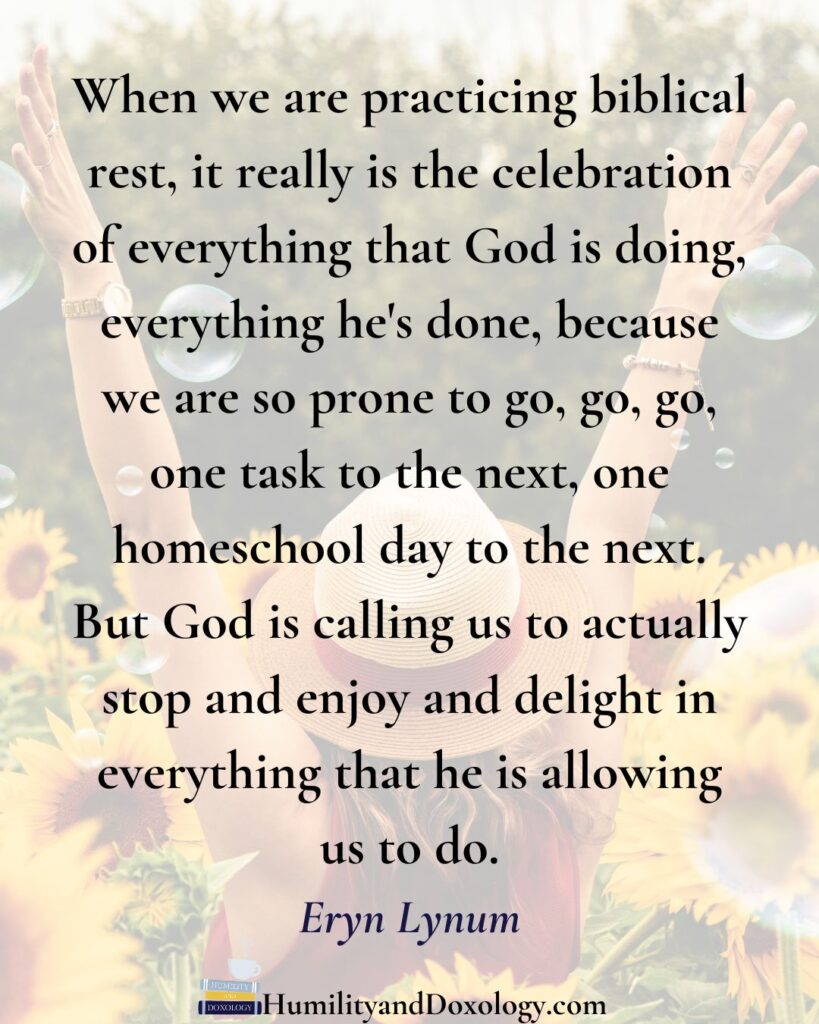
How does God want us to experience His gift of rest?
Eryn Lynum shared that God’s gift of rest is meant to be experienced through intentional rhythms, not just once in a while, but woven into our daily, weekly, and even seasonal lives. Rest isn’t only about stopping work; it’s about creating space to pause, reflect, and be renewed in God’s presence.
She highlighted three key rhythms of rest:
- Weekly Rest – Sabbath:
Eryn’s family observes a Friday-to-Saturday Sabbath, but she emphasized that the form isn’t as important as the intentionality. Jesus said the Sabbath was made for man, so families can adapt this practice in ways that work for their season—whether that’s a full day or a few dedicated hours. The key is to start somewhere.
Amy’s family seeks to honor the Sabbath by keeping the Lord’s Day holy each Sunday with corporate worship and a rest from the ordinary work and hobbies of the rest of the week. We find that beginning each week with a reminder of Christ’s death, burial, and resurrection is a joyful gift. - Daily Rest – Selah Moments:
Eryn encouraged families to build “Selah moments” into their everyday lives—simple pauses for reflection, prayer, or quiet. The term Selah in Scripture likely means “pause and reflect,” and it mirrors the classical idea of schole, or leisurely contemplation. This could look like a morning walk, a quiet afternoon tea, or lighting a candle while praying. These little rhythms help us maintain a “biblical pace” of life. - Seasonal Rest – Hibernation:
Before they ever practiced Sabbath, Eryn’s family started an annual “hibernation”—a two-week season each winter where they cleared their schedule, stayed home in the evenings, lit candles, played games, and enjoyed family time. It became a yearly rhythm of reset and eventually grew into a broader winter tradition of intentional rest.
Eryn and Amy both agreed that rest isn’t just about stopping—it’s about worship, trust, and living in step with God’s design. Rather than pushing ourselves to the breaking point, we’re invited to regularly pause and receive rest as a good gift from a good God.
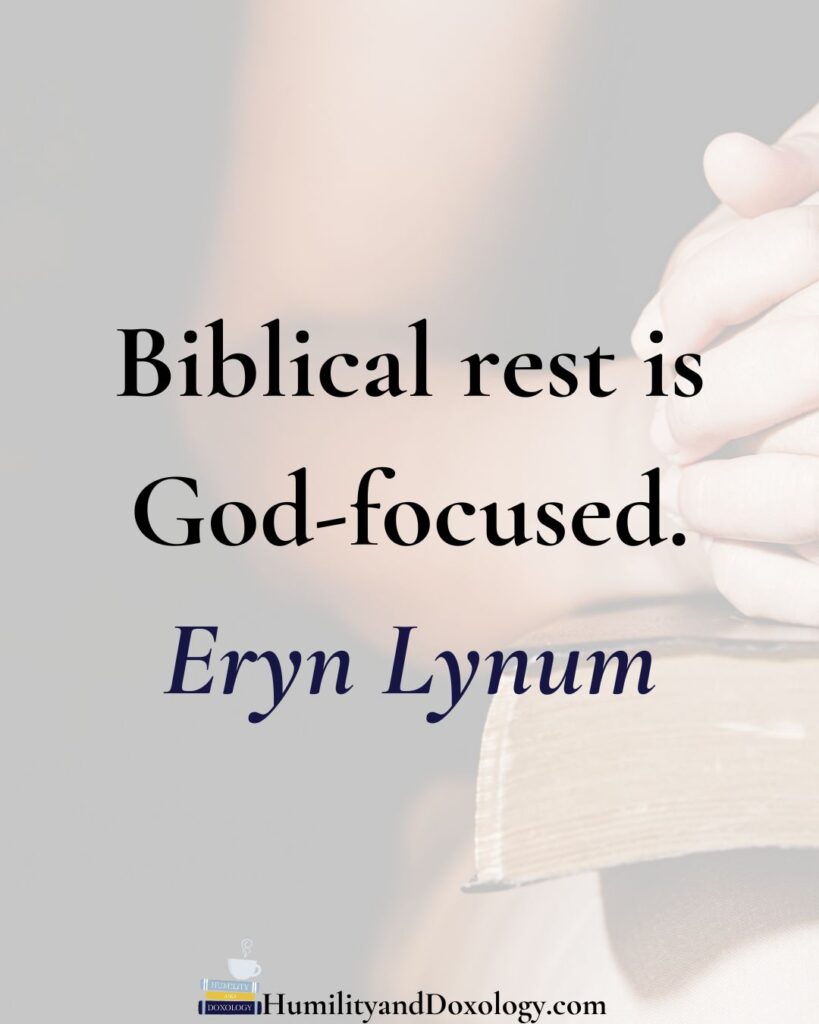
How does the biblical concept of rest differ from the modern idea of self-care?
Eryn Lynum explained that the biggest difference lies in focus:
- Self-care is centered on ourselves—our feelings, wants, and needs.
- Biblical rest, on the other hand, is centered on God—who He is, what He’s done, and delighting in His work.
She shared that the word Sabbath comes from the Hebrew Shabbat, which means “to stop” and “to delight.” When we practice biblical rest, we’re not just taking a break to recharge—we’re stopping to delight in the Lord. Just as God paused after creation (not because He was tired, but to delight in what He had made), we are invited to pause and delight in His ongoing work in our lives.
Amy added that this kind of rest is rooted in what Jesus has already accomplished for us. Because He has already completed the work of salvation, we can rest not out of striving, but as a response of joyful obedience. Biblical rest reminds us that we don’t have to earn God’s favor—it’s already been secured through Christ.
They also talked about how setting aside regular time can be a joyful rhythm that reshapes how we approach spiritual growth. Amy shared how her family sets Sundays apart with special worship, reading, and traditions. A friend once told her that if you use Sundays well, it’s like God giving you seven weeks of vacation a year—a beautiful reframing of rest not as a burden, but as a gift.
Eryn closed with a powerful reminder: practicing Sabbath means our children will spend one-seventh of their childhood learning how to rest and delight in God. That kind of formation is far more meaningful than the fleeting comforts of self-care.
What patterns and principles of rest do we see in creation?
Eryn Lynum shared that one of her favorite parts of writing her new book was exploring how God wove rhythms of rest into the natural world. Every daily entry in the book begins with a nature analogy, showing how creation itself teaches us about rest. Here are two striking examples she gave:
1. The Hummingbird – Deep Rest for High Energy
Hummingbirds are known for constant motion—flapping their wings around 4,200 times a minute and maintaining a heart rate of about 1,200 beats per minute. Their lives are fast-paced and full of movement, yet they only function well because of intentional rest.
They enter a state called torpor, a kind of mini-hibernation where their heart rate and body temperature drop dramatically. It’s this deep, restorative rest that fuels their intense activity.
The takeaway: Rest isn’t laziness. It’s necessary for sustainability—even the busiest creatures need real rest to keep going effectively.
2. The Great Frigate Bird – Selective Rest in Motion
This bird (pronunciation still up for debate!) can fly for months without landing. It rests through something called unihemispheric sleep, where it literally shuts down one half of its brain at a time while keeping the other half alert. Dolphins do this too!
The takeaway: This kind of selective rest reminds us that we sometimes need to filter what we allow into our minds. Not everything deserves our attention. We can shut out the noise—notifications, emails, constant news updates—so we can truly rest and focus.
Amy added that humans are not designed to know everything happening in the world at all times, even though technology now gives us that illusion. But that omniscience is God’s role, not ours—and thankfully, we don’t have to carry that burden.
Together, these examples show that creation reflects God’s wisdom in building rest into the rhythms of life. Whether it’s deep, quiet recovery or intentional filtering of input, we see in nature a beautiful model of how rest empowers purpose and peace.

How can we experience biblical rest every day?
Eryn Lynum and Amy Sloan both shared how biblical rest can become a meaningful part of daily life—especially through the rhythms of homeschooling and intentional family choices.
1. Choose the Pace of Your Days
Eryn emphasized that one of the beautiful privileges of homeschooling is that we get to decide the pace of our days. Rather than letting the hurried pace of society dictate our schedule, we can opt for slow, meaningful time—like quiet mornings, good books, music, and nature walks.
This is how we create “deep time,” she said—time that feels fuller and more connected.
2. Embrace Sabbath Rest as a Family
Sabbath is one way Eryn’s family lives out biblical rest each week. At first, it took some adjustment—especially limiting screens—but the practice has become something her children now look forward to and depend on. When they had to skip a few weeks of Sabbath due to travel and grief, her son asked to return to it, showing how much he valued the rest and connection it brings.
The key is to focus not on what you’re giving up, but on what you’re gaining: time for walks, games, reading, and togetherness.
3. Let Rest Be a Witness to God’s Heart
Rest isn’t just about being less busy. It reflects God’s own heart for us. As Eryn pointed out, we are called as parents to raise children who know and follow the Lord—and that includes modeling rhythms of work and rest.
This means being intentional about creating time for worship, family connection, and joyful presence, even if it requires hard choices.
4. Cherish the Gift of Rest in Hard Seasons
Amy shared a personal reflection on how their family’s rest rhythms—especially Sunday worship—were disrupted during her son Isaac’s cancer treatments and hospitalizations. That loss of shared rest deepened her appreciation for what they had once taken for granted.
When they were finally able to return to worshiping and resting together as a family, it was a gift. Experiencing its absence made them treasure it even more.
Biblical rest isn’t a luxury. It’s a command and a gift. From the example of creation and the natural world and into our own families, we see God’s invitation to pause, trust, and delight in Him. Homeschooling gives us a beautiful opportunity to choose rhythms of peace over pressure, and to lead our children in a way that reflects God’s heart for rest. As you consider what rest looks like in your own family’s life, may you be encouraged to slow down, savor worship, and rediscover the joy that comes not from doing more, but from abiding more deeply in Christ.
Key Takeaways
- Biblical rest is about presence, not productivity.
True rest is found in God’s presence, not in escaping responsibilities or simply stopping work. - Rest is rooted in God’s character and creation.
God established rest from the very beginning, not because He was tired, but to set a pattern for His people. - Rest is an act of trust.
Choosing to rest acknowledges our limits and shows our trust that God is in control and will provide. - Sabbath is a gift, not a burden.
Practicing Sabbath is not about following rules but about receiving a rhythm of renewal, joy, and relationship. - Nature reflects God’s design for rest.
From hummingbirds entering torpor to birds sleeping mid-flight, creation demonstrates the necessity of intentional rest. - We are not designed to know everything.
Like animals that filter sensory input, we too need to limit information and protect our mental and emotional capacity. - We need rhythms of both work and rest.
Productivity is sustained by consistent rest; it’s not either/or but a healthy pattern of both. - Rest can be built into homeschool life.
Homeschooling gives families the freedom to choose slower, more intentional daily rhythms that foster deep connection and peace. - Children learn to love rest through practice.
When families prioritize rest regularly, children not only adjust—they begin to crave it and feel its absence. - Worship and togetherness are core to rest.
Biblical rest includes gathering to worship and being with others in meaningful, unhurried ways that restore the soul.
Listen to the full podcast episode “Finding Rest in a Restless World with Eryn Lynum” on Homeschool Conversations with Humility and Doxology
Eryn Lynum is a certified Master Naturalist, educator, and national speaker. Eryn hosts the popular podcast for kids, Nat Theo: Nature Lessons Rooted in the Bible. She is author of Rooted in Wonder: Nurturing Your Family’s Faith Through God’s Creation, The Nature of Rest: What the Bible and Creation Teach Us About Sabbath Living, and 936 Pennies: Discovering the Joy of Intentional Parenting. She lives in Northern Colorado with her husband, Grayson, and their four children whom they homeschool. Eryn has been featured on broadcasts including Focus on the Family, FamilyLife Today, Christian Parenting, and Raising Christian Kids. Every opportunity she gets, she is out exploring God’s creation with her family and sharing the adventures at ErynLynum.com.

Find Eryn online:
You may also enjoy:
- The Art of Observation: Enhancing Homeschooling with Nature Study
- Nature Study in the Christian Homeschool
- Beauty in our Homeschools: Handbook of Nature Study, Outdoor Hour Challenge, and Fine Arts (with Shirley Vels and Tricia Hodges)
- Nature Study Hacking and Nurturing a Life of Learning (with Joy Cherrick)
- Nature Study and Relaxed Charlotte Mason Homeschool (a video interview with Cindy West)
- Nurturing Rhythms and Rest in the Homeschool Journey
- Rooted in Rest: Charlotte Mason, Community, & Family Life with Abby Stone
- Reading, Relationships, and Restfully Homeschooling (with Sarah Mackenzie)
- True Rest for the Weary Homeschool Mom: Humility and Doxology in Identity
Check out all the other interviews in my Homeschool Conversations series!
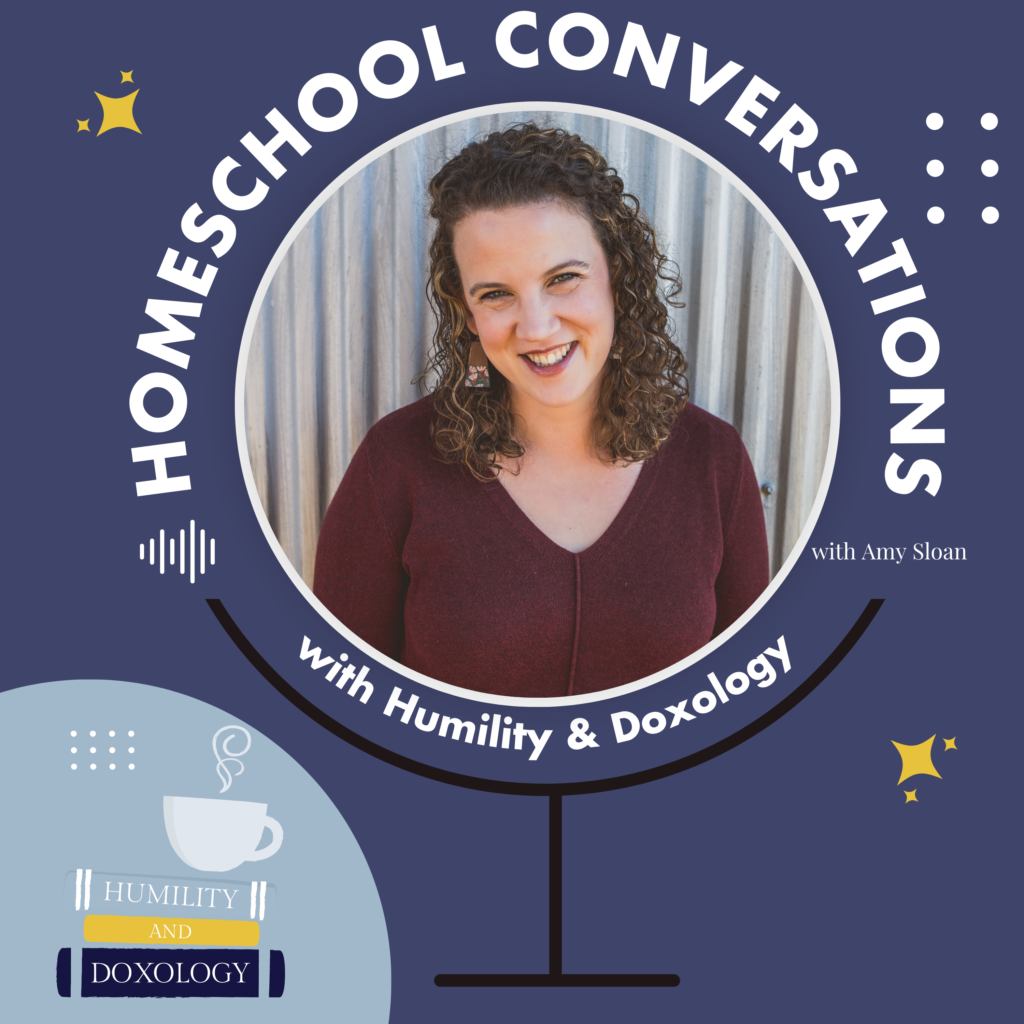
Amy Sloan: Hello, friends. Today I am joined by Erin Lynham. She is a repeat guest, and so I’m just delighted to have her here again. Erin is a certified Master Naturalist, educator, and national speaker. She hosts the popular podcast for kids, Nat Theo, Nature Lessons Rooted in the Bible. She’s the author of Rooted in Wonder, Nurturing Your Family’s Faith Through God’s Creation, The Nature of Rest, What the Bible and Creation Teach Us About Sabbath Living, and 936 Pennies, Discovering the Joy of Intentional Parenting. Erin lives in northern Colorado with her husband, Grayson, and their four children, whom they homeschool. Erin has been featured on so many different podcasts, so I will link to some of those in the show notes, and every opportunity she gets, she’s out exploring God’s creation with her family and sharing their adventures at ErinLynham.com. Erin, I’m really glad to be able to chat with you again. I know last time you were on the podcast, we talked a little bit more about your homeschool, so I’ll send people there if they want to learn more, but why don’t you hear, for those who don’t know you, tell us a little bit about maybe the grades in your home this year and what your homeschool family life looks like.
Eryn Lynum: Thank you, Amy. Thanks so much for having me back. Yeah, so we homeschool our children. We have homeschooled them since the beginning. Actually, my husband and I are both second-generation homeschoolers, so we grew up homeschooled, and I really don’t remember a conversation of if we were going to homeschool, it’s just what we knew we wanted to do is have our children here with us. So our boys are grades 7th, 6th, and 4th, and then our daughter is in 1st grade. So this is our first year – well, I guess it’s our second year with a middle schooler, but our first year with two middle schoolers, so this is definitely a new season for us.
Amy Sloan: Yeah, that’s exciting. Well, now that I have one graduate and another graduating from our homeschool this spring, I just say the teen years are really great, so you have a lot to look forward to.
Eryn Lynum: Thank you. That’s good to hear, and I see it. I see it. There’s new challenges, but also such sweet moments with them as well. Definitely.
Amy Sloan: Well, today I wanted to kind of focus on the topic of your new book that’s coming out, and I think that every homeschool mom who is listening can relate to the feeling of sometimes feeling pretty exhausted, worn out, tired, whether it’s in our body, our mind, or our soul. And so I was wondering, what does the Bible have to say about rest?
Eryn Lynum: Well, it’s so interesting. And I started looking at this topic a few years ago. So our family has been practicing a regular Sabbath for three years now, and as we entered into that practice, I started really digging into scripture and seeing, okay, what does the Bible say about rest? And what surprised me is rest is not like this topical theme just mentioned a few times throughout the Bible. It’s actually a very foundational theme, like the roots of rest spread very deep and wide throughout scripture. And we see rest, I always tell people it’s hinted at during creation, established in the wilderness, and fulfilled at Calvary. Because we see that when God created everything, afterwards he rested. And we don’t get a mention of Sabbath there, but it’s hinted at. He’s showing us there’s this model of work and rest and this rhythm. And then in Exodus 16 in the wilderness is the first mention of Sabbath. And the context there is the Israelites have yet again, they’re wandering away from God and worshiping whatever they want to worship, and they’re grumbling against God. And God meets their need through manna, and he tells them to gather for so many days and then stop gathering and trust him for that seventh day. And again, this is the first mention of Sabbath. And so the Israelites, they really didn’t have any context for this. Like surely they could think back to the creation week and this idea of rest and work, but this was the first mention of Sabbath. And so really it was a call to an active faith. God was calling them to trust them, like stop working, rest, and I’m going to take care of it. And so we see this idea of Sabbath established in the wilderness. And then when Christ came, he fulfilled rest. Because for one, he models to us a life of rest. Like you see him so busy during his years of ministry. And the thing that sustained him was he would go away often into the Greek word is Eremos, and that is a quiet place or a desolate place or the wilderness. And so he was always going away to be with the father and rest. And that is really what gave him perspective and sustained him as he entered into the very human existence. And then of course, on Calvary, he gave us true eternal rest and made that possible. So like in Matthew, where he calls, where he says, all who labor and are heavy laden, come to me and I will give you rest. That promise is possible because of his work on Calvary. And so we see rest from the very beginning of creation established in the wilderness and then fulfilled at Calvary.
Amy Sloan: I think it’s really fascinating as we study scripture as a whole, especially as we study the Old Testament, right? We see these shadows of the eternal fulfillment. And so we have the rest of the seventh day, but that’s not the ultimate rest. And we have the Sabbath rest, you know, in the Mosaic law, and yet that’s not quite it. And then God’s bringing his people into this land of rest, but that’s not quite it either. And so we have in Christ this fulfillment of rest. And then in Hebrews, I love where it says, there is yet a rest to come for the people of God, right? We look towards this eternal destiny of rest, which is pretty amazing. You really see it as this entire framework of the Bible. Yeah.
Eryn Lynum: Exactly. Yeah. It’s part of God’s overarching plan, like from beginning to end. And this is his heart for us.
Amy Sloan: And of course, it’s so much deeper than just, you know, taking a nap or a break from our work, but we’ll have to get to that in a minute. You mentioned your family has practiced this Sabbath rest idea for a few years now. And someone might say, but I need that extra day to get my to-do work, my to-do list done, or, you know, that’s when I do all my planning or whatever. So is this idea really realistic in modern day life? Yes.
Eryn Lynum: Yes, it is. I see people are beginning to really see that this hustle mindset of go, go, go, do, get ahead really isn’t working. It’s not working for society. It’s not working in our families. It’s not working for our homeschooling. And this lines up with not only what we see in scripture, but also what we see in history and science. So you can look back at ancient civilizations like Greek and Roman empires, and they had these built-in rhythms of rest that really sustained them and allowed them to do everything that they were doing. And even like in science, when we look at how rest enables our minds to think more clearly, like when we allow our minds to rest, we are more creative. We are able to problem solve better. And this is so key for homeschooling. If we go, go, go, go, and never allow our minds to rest, then we are not operating at our fullest potential and what God created us to do. And so even like, yes, with the mind, but also with the health of our bodies. One reason I wrote this book is because when I was 14, I was diagnosed with Addison’s disease. It’s a very rare autoimmune disorder. So my adrenal glands don’t work at all, and they have not worked since I was probably about 13. And bar a miracle, they will never work. And your adrenal glands, they produce, of course, adrenaline, but they also produce other essential hormones, including cortisol, which is your stress hormone. So that’s the hormone that when you’re stressed, whether it be physical, spiritual, mental, your body is going to produce more cortisol to cope with that. Well, my body doesn’t do that. And so I take replacement hormones as needed to really deal with that. But when I was diagnosed, my parents began coaching me in biblical stress management. And a lot of that had to do with rest. And so this book has really been the culmination of my journey of rest is essential. We see it all throughout creation that God designed us to thrive through rest. And we see that for our minds, for our bodies, in science, in history. And so I think just that points to the fact that it is realistic and should be relevant because it’s so essential. Now that doesn’t mean it’s going to be easy. Rest in our modern day is very challenging because it’s countercultural. But we are supposed to embrace countercultural. That’s what we do as homeschoolers. And so as we accept and celebrate God’s gift of rest, even when it’s hard work to do so, we are honoring him and we are bringing our families into his abundant life.
Amy Sloan: And I think so often we think that, oh, well, if there’s time, we have to fill it. It has to be producing something. Like there’s this idea that if it’s not producing something measurable, that we have wasted that time. And so to switch our mindset and really see the value of rest. And I think just that faith, like you mentioned with the manna, you know, they had to try and trust that if they gathered the manna on that one day and they didn’t go out the next day, it was going to be enough for two days. And so I think about that sometimes just with my time, you know, the commitment to take time for family devotions, you know, or to prioritize public worship, all of those things take a good amount of time and energy. And it can be easy to think, oh, well, think of all the things we could be doing instead that would be more, you know, measurably great or whatever. But that’s where we’re showing that faith too of, okay, I trust that what God has planned for me is actually for my good, right? This is actually for my good, not just, you know, something for him.
Eryn Lynum: Yeah. Yeah. Absolutely. His math works. Like I wrote math. His math works. We can trust him for that seventh day. He’s going to make it work. Exactly.
Amy Sloan: Well, how does God want us to experience this gift of rest?
Eryn Lynum: There’s a lot of different ways to experience God’s rest. And I think it comes down to rhythms of regular rest. And so I mentioned Sabbath and of course that’s a weekly celebration of rest. And my family, we celebrate the traditional Hebrew Sabbath. So we start Friday evening and we usually go to Saturday evening, but you can do this in a lot of different ways. Like God said that he made Sabbath for man, not man for the Sabbath. And so really finding what’s going to work for your family. You might need to start with a four hour chunk on a Wednesday, depending on your circumstances. And that’s totally fine. Starting is better than not starting. And then along with those rhythms, really focusing also on daily rest. And so what are the rhythms that we can bring into our day that remind us to stop and pause and reflect? And I talk often about the idea of Selah moments, Selah in scripture and Bible scholars are really torn on what Selah means. And really we don’t know, but when you dig into all the different research that has been done on it, most likely it is a musical or liturgical term that means stop, pause, reflect. And I love this idea because it reminds me of Aristotle. He had this idea of Skolay and Skolay is leisurely contemplation. It is building time into your day to simply think. And the beauty of homeschooling is we get to do that. We get to encourage our children to do that, to pause with good books and go on a walk and actually like seep in that wisdom and information. But we also get to do it as parents and I believe we should do that. So these daily rhythms, whether it’s a walk in the morning or pausing for a cup of tea in the afternoon or lighting a candle and saying a prayer, like all of these rhythms throughout our day that remind us, you know what, we need to keep a healthy and biblical pace. So we have weekly rest, we have daily rest. My family, before we even started Sabbathing, we started hibernating and I actually had a whole chapter on this in Rooted in Wonder because it’s been such a huge thing for our family. We started, I want to say it was about 10 years ago and we were in a super busy season in life and my husband came to me, it was the holidays, and he said, why don’t we hibernate? I was like, what do you mean? He’s like, well, like the animals. Why don’t we hunker down for a little while and just rest? And so we took two weeks and basically wiped everything off of our calendar. And in the evenings we would light candles and play board games and play music and just have sweet time together. And it really became a reset every year for us. We did two weeks for probably about six years, two weeks in the winter, and now it has actually just become a regular rhythm of our winter where we just enter this really restful state.
Amy Sloan: I love that. And I think that points to the idea of rest, of course, relating to regular worship, but it also is something so much bigger than that. It’s listening and taking those moments of pause and not pushing ourself to the breaking point, right? All of those things. Yeah. Yeah. Well, how does this biblical idea of rest differ from the world’s kind of thoughts about self-care?
Eryn Lynum: Well, self-care is focused on us and biblical rest is God focused. So the word Sabbath comes from the Hebrew Shabbat, which can mean to both stop and delight. So when we are practicing Sabbath and biblical rest, really what we’re doing is we are stopping and delighting in the Lord and in the work that he is allowing us to do. Because when we think back to creation and when God created and then stopped to rest, he didn’t need to rest. Like scripture tells us in Isaiah that he does not grow tired or weary. So I believe one reason he chose to rest was to just stop and delight in everything that he had just made. And so when we are practicing biblical rest, it really is the celebration of everything that God is doing, everything he’s done, everything he’s doing in our family, because we are so prone to go, go, go, one task to the next, one homeschool day to the next. But God is calling us to actually stop and enjoy and delight in everything that he is allowing us to do. So self-care is really focused on what do I want, what do I want to feel, what do I want to experience, what do I need? While rest is really focused on, God, what are you doing and what do you want to do?
Amy Sloan: And what Jesus has already done for us, right? That active work he already did, he worked for us. That’s one of the things that brings me so much hope and joy, is knowing that Jesus worked for me. Not that I don’t still work in joyful obedience now, but it’s a response. It’s a restful work because I’m not trying to achieve and trying to please God, right? Jesus already worked for me, which is such a joy. So our rest can be focused on him and his work and not, like you were saying, on ourselves.
Eryn Lynum: Yes, absolutely.
Amy Sloan: I had a friend, her mom told me this probably when I was like a tween or a teenager, but it really stuck with me. In our family, one of the things we do to prioritize these regular cycles of rest is we set aside Sunday as the Lord’s Day and have morning and evening worship and try to just make that day set apart and different. We have certain books we read, not that you can’t read them on other days, but just books that are especially for Sunday. We have a Sunday bookshelf and things like that. And one of the motivations for that part in particular was this friend’s mom who told me that sometimes she had heard women say they just didn’t have time to read books of theology or read devotional books. And she said, but I like to tell people that God gave you seven weeks of vacation every year. If you just think about, you know, one Sunday a week, that’s 52 weeks. Like it’s actually more than seven weeks if you just read even only on a Sunday. Seven weeks that God has given you each and every year to devote to him. That really changed the way I thought about it instead of it being a burden. It’s like, wow, seven weeks of rest that I get to focus on reading about God. So it’s a pretty joyful thing in that way.
Eryn Lynum: Yeah, it’s so true. People often ask me, like, how do you read so much? And I tell them Sabbath. Sabbath is when I read. And it is just this built-in day for that skolay practice of intellectual thinking and processing. And then thinking about, like, I love the idea of seven weeks throughout the year of vacation because I often think what the Sabbath practice is going to do for our children, they’re going to spend one seventh of their childhoods resting and learning what rest looks like. And that’s pretty powerful.
Amy Sloan: Yeah. Well, I know that you love seeing God’s truths worked out in his creation. So what are some ways that we see this concept of rest here in the natural world?
Eryn Lynum: This was the most fun part about writing the new book is every daily entry opens with an analogy from nature. And so how we see nature resting because we see it all over. God designed rhythms of rest all throughout his creation. And so there’s all kinds of examples. But one that I use right in the introduction, it’s really been just this poignant thing in my life, is a hummingbird. Because when you think about a hummingbird, what do you think about? Constantly flapping wings.
Amy Sloan: Yeah. Yeah.
Eryn Lynum: Like they are always, always moving. In fact, every minute their wings flap about 4,200 times. And to fuel that constant activity, their hearts have to be about 1,200 times. So it’s about 1,400% more than our human heartbeat. So they are always going, going, going, going. Going, going, going. But how they really sustain this level of busy activity is through deep rest. So they practice something called torpor. It’s kind of like a mini hibernation where they’re going to enter a very sleepy state and their temperature is going to lower, their heart rate is going to slow down. And it is this torpor rest that really allows them to be so effective. And so when God calls us to rest, he’s not calling us to be ineffective or lead lazy lives. Like scripture speaks against that. We can be like the hummingbirds. We can be going here, there, doing the things, gathering the things, being really productive. But it has to be sustained by those rhythms of rest. So another one I like, I’ll give you another bird example, is the great frigate bird. Frigate, frigate. I’ve never figured out how to pronounce that. But it is this bird that will spend months in the air without landing. It will fly for months. And how it does that is through something called unihemispheric sleep. It actually shuts off half of its brain. Dolphins do this too. And so as it’s flying, the part of its brain that is awake and alert is able to keep it safe. So it can know if there’s any dangers. But it turns off half of its brain so that it’s not taking in other sensory things or anything that it doesn’t need. And so I use this to teach that sometimes God is calling us to filter what is coming in. Just like that unihemispheric sleep. We need to filter the notifications. We need to filter what’s coming into our email inboxes so that we can truly rest.
Amy Sloan: We actually aren’t designed to know about everything in the world at every single second of it, right?
Eryn Lynum: Now we can, which is the struggle. But you’re exactly right. God never meant us to operate with that burden. He will take on that burden. He knows everything at all times. And we don’t need to worry about so much of it.
Amy Sloan: We do not have to be the Holy Spirit. That job is already covered.
Eryn Lynum: Thankfully.
Amy Sloan: Thankfully. Yes. Okay. So how can we not only model this biblical rest ourselves, but really bring it into our homeschools and encourage our children in this way and their education?
Eryn Lynum: Well, this is one of the beautiful parts about homeschooling is that we actually get to choose the pace of our days. And I think that’s the reason many of us homeschool. I know that’s true for my family is I don’t want the school system and society setting the pace of my child’s life because we see what’s happening in society and that is not a good product. And so I want to be able to decide how quick or slow my kids are living their lives. Like when we go busy, busy, busy, busy, then a day is gone. But when we spend slow days at home, slow mornings, reading good books together and listening to music and going on nature walks, we are actually expanding time. Like this is deep time, meaningful time. And so as we are like, we’re allowed to do this as parents. We’re not only allowed to do this. We are called to do this, to raise our children, to love and follow the Lord. And the Lord’s heart is for rest. And so we might need to make some hard decisions. If your family decides to Sabbath, there might be some pushback at first because a big thing about Sabbath is no screens. And so just being okay with that and really welcoming that discomfort, but telling your kids why you’re doing this, this is God’s heart for us and really focusing not on what’s lost, but on what is gained. So instead of saying, Hey, we’re not going to do any screens on Saturday saying, Hey, we’re going to go on a walk and we’re going to play games and we’re going to read books together. Our kids want that. They want that time together. And just as a personal example, like this works because when we started doing this, we were probably about a year into our Sabbath practice and our family experienced a really big loss. And because of that, we were traveling and visiting family for several weeks in a row. And so we missed Sabbath for about three weeks. And my son who was 11 at the time, he finally just said, he’s like, can we please Sabbath this weekend? Like he felt it and they now depend on it that when we miss it, they’re actually really disappointed. So this does work and your kids really will see just the joy and the delight of it all.
Amy Sloan: And our own family over the past year with Isaac’s cancer treatment and hospitalizations, there have been long stretches of time where we were maybe in the hospital or not together as a family for worship or someone would have to be home while other parts of the family were going to church. And it just felt so disjointed because that is such an intrinsic part of our rest work cycle in our home. And the past few months, it has been such an incredible joy. We’ve been able to go and be together as a family and all of us together. Like I don’t think I will ever take for granted just the joy of being able to worship and rest and be all together at one time for a common goal. And it’s when you don’t have it, I can relate to what your son was saying. Because when you sometimes can take it for granted, I guess, when it’s just a habit, when you’re no longer doing it purposefully and worshipfully and God, you know, thinking how this is related to God, not just ourselves like we talked about earlier. But then when you miss it, oh, how you miss it. Yeah, absolutely. Well, this has been an encouraging conversation. I hope that it gives things and ideas for people to consider how they can prioritize rest, biblical rest in their own family lives. But here at the end, I want to ask you the questions I’m asking all my guests this season. And so the first is just what are you personally reading lately?
Eryn Lynum: I have been deep diving into science and natural theology and Darwin and evolutionary theories and all the science that stands against them. And so I really just enjoyed, I just finished Darwin’s Doubt by Stephen C. Meyer. It was a really, really in the weeds book, like really technical, very intellectually pushing for me anyway. And so that was a good one. That was a good one. And then after that, I read Darwin’s Sandcastle. And it kind of took all those ideas from Darwin’s Doubt and made them very accessible. And that’s by Dr. Gordon Wilson, who does the Riot in the Dance films, phenomenal nature films from a creation perspective. So I finished that one. And then I went right into his biology textbook, Riot in the Dance, which I think I’m going to use for my kids in high school because it’s just a phenomenal biology textbook, but very accessible and all from a creation standpoint. All right.
Amy Sloan: Final question is, what would be your best tip to turn around a homeschool day that is going all wrong? Go for a walk outside. That’s not surprising. That would be your answer.
Eryn Lynum: When things are going awry and I just want to call it quits, I’m just, okay, let’s go on a walk. Whether it’s me with the kids, whether it’s me alone, that always resets it.
Amy Sloan: I actually did that myself earlier today. I was very tired and grumpy and I was like, okay, I’ve got to get my attitude adjusted before I chat with Erin. So I went for a walk. I don’t know that a neighborhood really counts as a nature walk, but it was outside. It’s something.
Eryn Lynum: It’s something.
Amy Sloan: It’s something. It counts. Erin, where can people find you all around the internets and your books?
Eryn Lynum: Yeah, well, on my website, erinleinem.com. And my name is spelled funny. It’s E-R-Y-N-L-Y-N-U-M.com. And my podcast, Nat Theo, Nature Lessons Rooted in the Bible, is a podcast for kids where I teach science and nature, but all rooted in biblical truth. And so Nat Theo is available on Apple Podcasts, Spotify, YouTube, or on my website. And then books are, of course, on Amazon. And The Nature of Rest, yeah, is the newest one. And that is on Amazon as well.
Amy Sloan: Awesome. I will have links to all of those things, especially a place where you can check out Erin’s newest book in the show notes for this episode at humilityanddoxology.com. I would love it if you would take a moment to send this episode to a friend who maybe is feeling weary and discouraged and could be encouraged by these ideas of biblical rest. And until next time, happy homeschooling.
